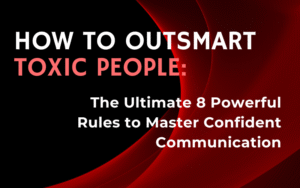Hidden signs of hostility can be incredibly difficult to detect, especially when they come from people we trust most. You know that unsettling feeling when someone says all the right things but something feels… off? That’s your intuition picking up on subtle cues that your conscious mind might miss.
We’ve all been there – surrounded by people who cheer for our successes publicly but secretly hope we fail. It’s that age-old dynamic where friends smile to your face while plotting behind your back. As psychoanalyst Jacques Lacan once noted, envy isn’t just about wanting what someone else has; it’s about wanting to be that person who deserves those things.
The Psychology Behind Hidden Hostility
Before we dive into the specific signs, let’s understand what drives this behavior. When someone achieves something significant – whether it’s a new car, promotion, or personal milestone – it can trigger deep-seated insecurities in others. Instead of using that success as inspiration, some people choose the destructive path of trying to tear others down to elevate themselves.
This phenomenon is particularly common in close relationships where hidden signs of hostility can fester unnoticed. Research shows that envy often stems from feelings of inadequacy and the belief that someone else’s success somehow diminishes our own worth.
1. Sarcasm Disguised as Humor
One of the most common hidden signs of hostility is the use of cutting sarcasm followed by “I was just joking!” These aren’t genuine jokes – they’re calculated attempts to hurt you while maintaining plausible deniability.
Manipulators love this tactic because it puts you in an impossible position. If you call them out, they’ll say you “can’t take a joke” or “don’t have a sense of humor.” You end up being the one who looks oversensitive while they get away with their verbal jabs.
Red flag phrases to watch for:
- “Nice outfit… for a garage sale” followed by “Just kidding!”
- “Wow, you’re really trying hard” with a smirk
- Any comment that makes you feel small, followed by dismissive laughter
2. Strategic Sabotage Under the Guise of “Mistakes”
This is where hidden signs of hostility get really sneaky. The person always has an excuse – they “forgot,” “got busy,” or “misunderstood.” But notice the pattern: these “mistakes” consistently work against your interests.
In professional settings, this might look like:
- Forgetting to include you in important emails
- “Accidentally” double-booking your meeting room
- Consistently being late with deliverables that affect your projects
In personal relationships, watch for friends who:
- Cancel plans at the last minute repeatedly
- “Forget” important events in your life
- Consistently fail to follow through on commitments
Studies on workplace dynamics show that this type of passive-aggressive behavior is often a manifestation of deeper resentment or competition.
3. Conversational Hijacking and Quiet Competition
Here’s where hidden signs of hostility become obvious once you know what to look for. You start sharing news about your life, and suddenly the conversation becomes entirely about them. They launch into a 30-minute monologue about their achievements, problems, or opinions.
This isn’t just poor conversation skills – it’s a deliberate attempt to minimize your importance and maximize theirs. Healthy relationships involve genuine back-and-forth dialogue, not one-sided performances.
Watch for these patterns:
- Every story you tell prompts a “bigger” story from them
- They interrupt you mid-sentence to talk about themselves
- They show visible discomfort when attention isn’t on them
- They rarely ask follow-up questions about your experiences
4. Fake Sweetness and Artificial Kindness
There’s a huge difference between genuinely kind people and those who are merely “nice.” When someone truly cares about you, you can feel their warmth and authenticity. But artificial kindness feels hollow and performative.
People displaying hidden signs of hostility often use overly sweet language that lacks genuine emotion:
- “Oh, I’m SO happy to see you!” (said with dead eyes)
- “That dress is absolutely GORGEOUS!” (with zero enthusiasm)
- Compliments that feel scripted rather than spontaneous
Trust your gut on this one. Your body often picks up on microexpressions and subtle cues that reveal someone’s true feelings, even when their words say otherwise.
5. Control Masked as Concern
This is perhaps one of the most damaging hidden signs of hostility because it’s so hard to call out. The person positions themselves as caring and protective while systematically undermining your confidence and independence.
Common controlling behaviors disguised as care:
- “Are you sure you should start that blog? It seems risky…”
- “I just don’t want to see you get hurt by dating him”
- “You know I’ve been through this before – trust me, it won’t work”
- “I’m only saying this because I care about you”
The key difference between genuine concern and hidden hostility is that real friends support your decisions even when they’re worried. Fake friends try to talk you out of growth opportunities while positioning themselves as your savior.
Research on emotional manipulation shows that this type of behavior often stems from a need to maintain power and control in relationships.
6. Behind-the-Back Gossip and Criticism
In our social media age, this form of hidden hostility can be particularly damaging. People feel emboldened to share opinions and spread rumors that can seriously impact your reputation and relationships.
Here’s the thing: ignoring gossip doesn’t make it go away. While you don’t need to engage in drama, you do need to ensure your voice is heard. If you stay silent, others might assume there’s truth to the rumors.
How to handle this:
- Address false information directly but calmly
- Share your perspective in appropriate settings
- Document serious instances that could affect your professional life
- Consider the source – are they known for stirring up trouble?
7. Resentment Over Your Success
This is where hidden signs of hostility become most obvious. Instead of celebrating your wins, these people respond with jealousy, minimization, or outright hostility.
What genuine celebration looks like:
- Immediate excitement and genuine smiles
- Asking questions about your experience
- Wanting to hear details about your journey
- Offering to help or support you further
What hidden hostility looks like:
- Forced smiles that don’t reach their eyes
- Immediately changing the subject
- Making jokes that diminish your achievement
- Bringing up their own struggles as a response to your good news
Sometimes success reveals who was truly in your corner all along. Psychology research indicates that major life changes often shift relationship dynamics, separating contextual friendships from deep, lasting bonds.
8. Mismatched Words and Body Language
The final and most telling of all hidden signs of hostility is when someone’s words don’t match their physical reactions. Humans are remarkably good at reading body language, even subconsciously.
Pay attention to:
- First reactions before they “compose” themselves
- Tension in their shoulders or jaw when you share good news
- Forced smiles that look more like grimaces
- Avoiding eye contact during important conversations
- Closed-off body posture when discussing your successes
The initial response is always the most honest. After that split second, people remember to put on their social masks and say what they think they should say.
This is why it’s better to share important news in person rather than over text or phone calls – you need to see their genuine reaction to know where you stand.

Here’s something that might be difficult to accept: not every relationship is meant to last forever, and that’s okay. Some people are “context friends” – they’re great companions during specific life phases but naturally drift away as circumstances change.
Context friends are connected to you through:
- Shared work environments
- Similar life stages (college, new parenthood, etc.)
- Temporary situations or challenges
- Convenience and proximity
Core friends are connected to you through:
- Shared values and genuine affection
- Mutual respect and support
- Deep understanding of who you are
- Commitment that transcends circumstances
When you experience success or major life changes, you might naturally outgrow some context friendships. This doesn’t make you a bad person – it’s part of healthy growth and development.
Protecting Your Energy and Well-being
Recognizing hidden signs of hostility is just the first step. Once you’ve identified these patterns, you need to decide how to respond. Sometimes this means:
- Setting firmer boundaries with controlling people
- Reducing contact with those who consistently undermine you
- Choosing not to share personal information with certain individuals
- Investing more time in relationships that truly nourish you
Remember, you can’t control other people’s reactions to your happiness and success. But you can control how much access they have to your life and energy.
The Bottom Line
Hidden signs of hostility are unfortunately common, especially among people we consider close friends or family members. The key is learning to trust your instincts while also gathering concrete evidence of concerning patterns.
Don’t let fear of being “dramatic” or “paranoid” prevent you from protecting yourself. Your mental health and well-being matter more than maintaining relationships that drain your energy and undermine your confidence.
True friends celebrate your victories, support your dreams, and want the best for you – even when it means you might outgrow shared circumstances. Anyone who consistently displays these hidden signs of hostility doesn’t deserve a front-row seat to your life.
Have you noticed any of these patterns in your own relationships? Trust your gut, set your boundaries, and remember that you deserve friends who genuinely want to see you thrive.




